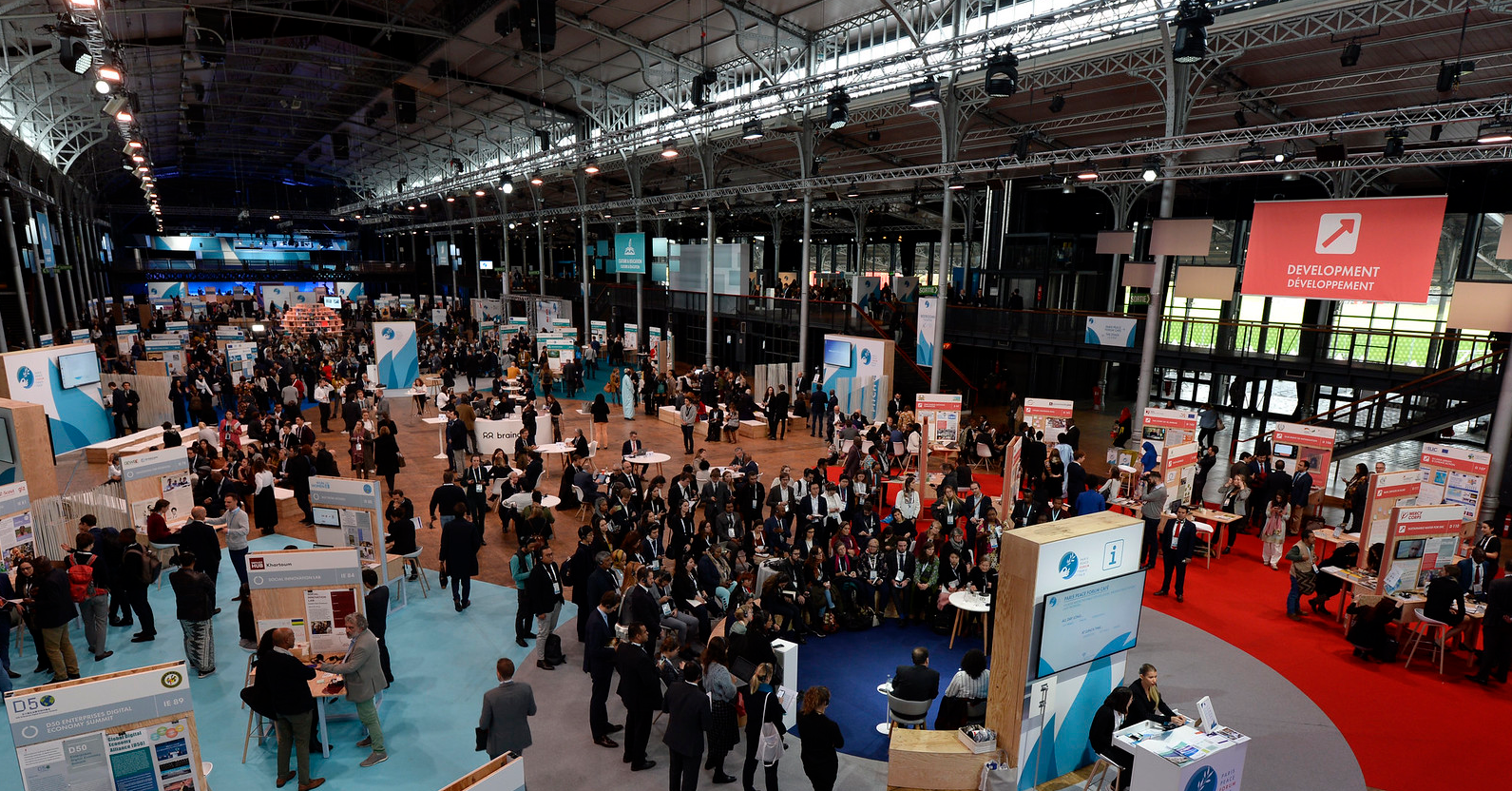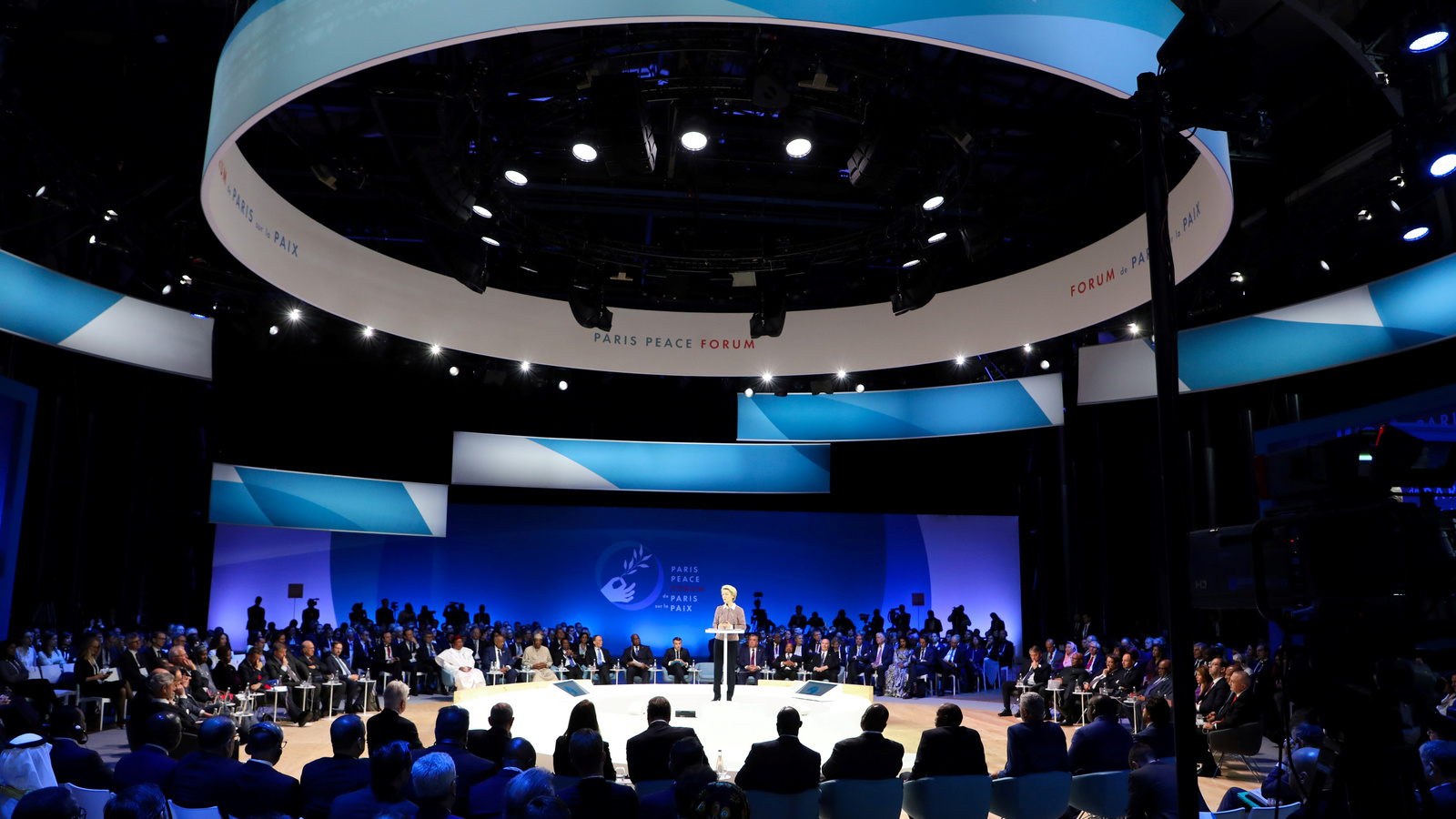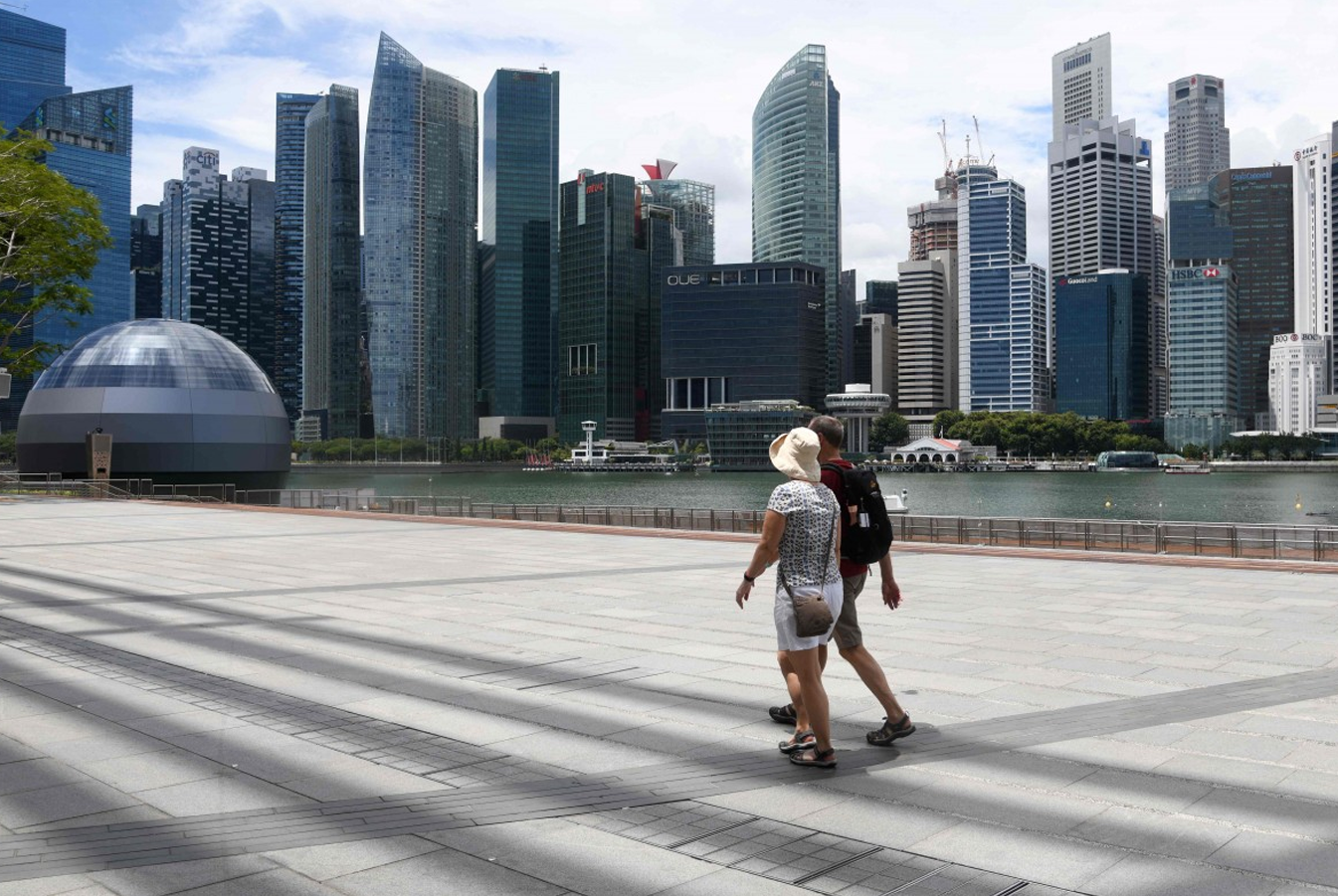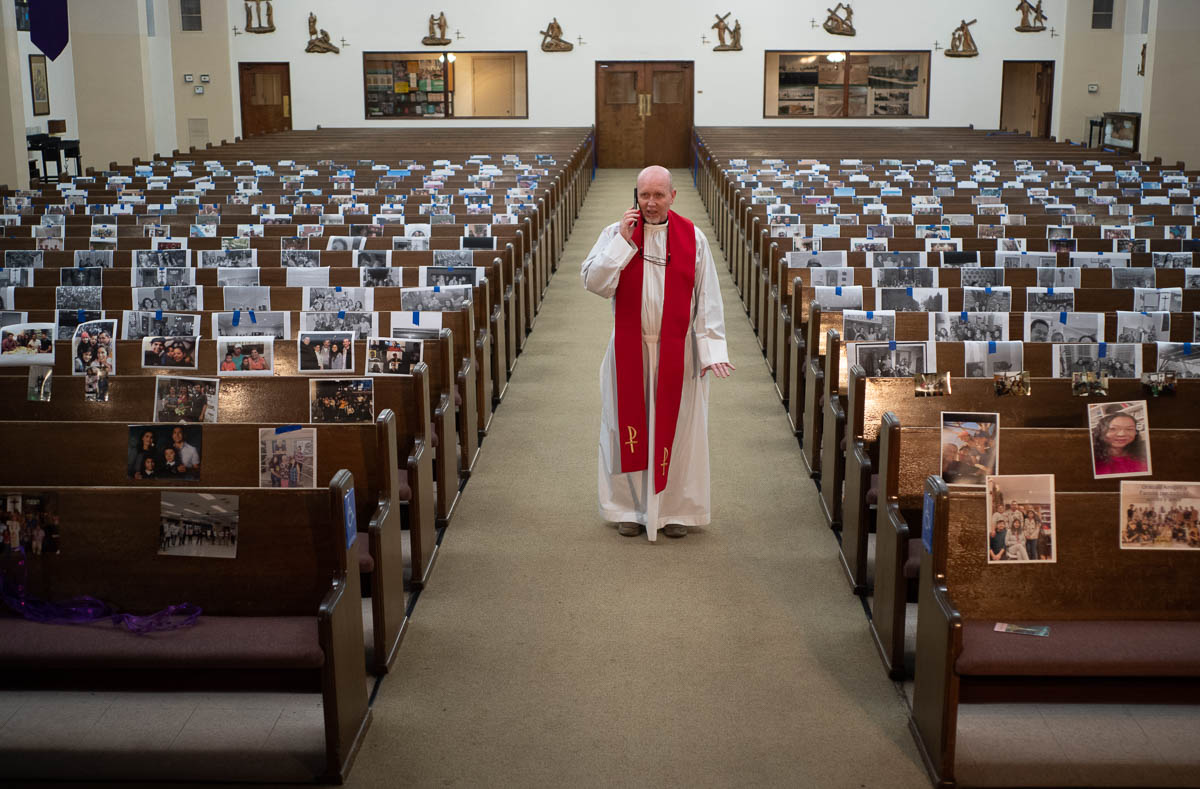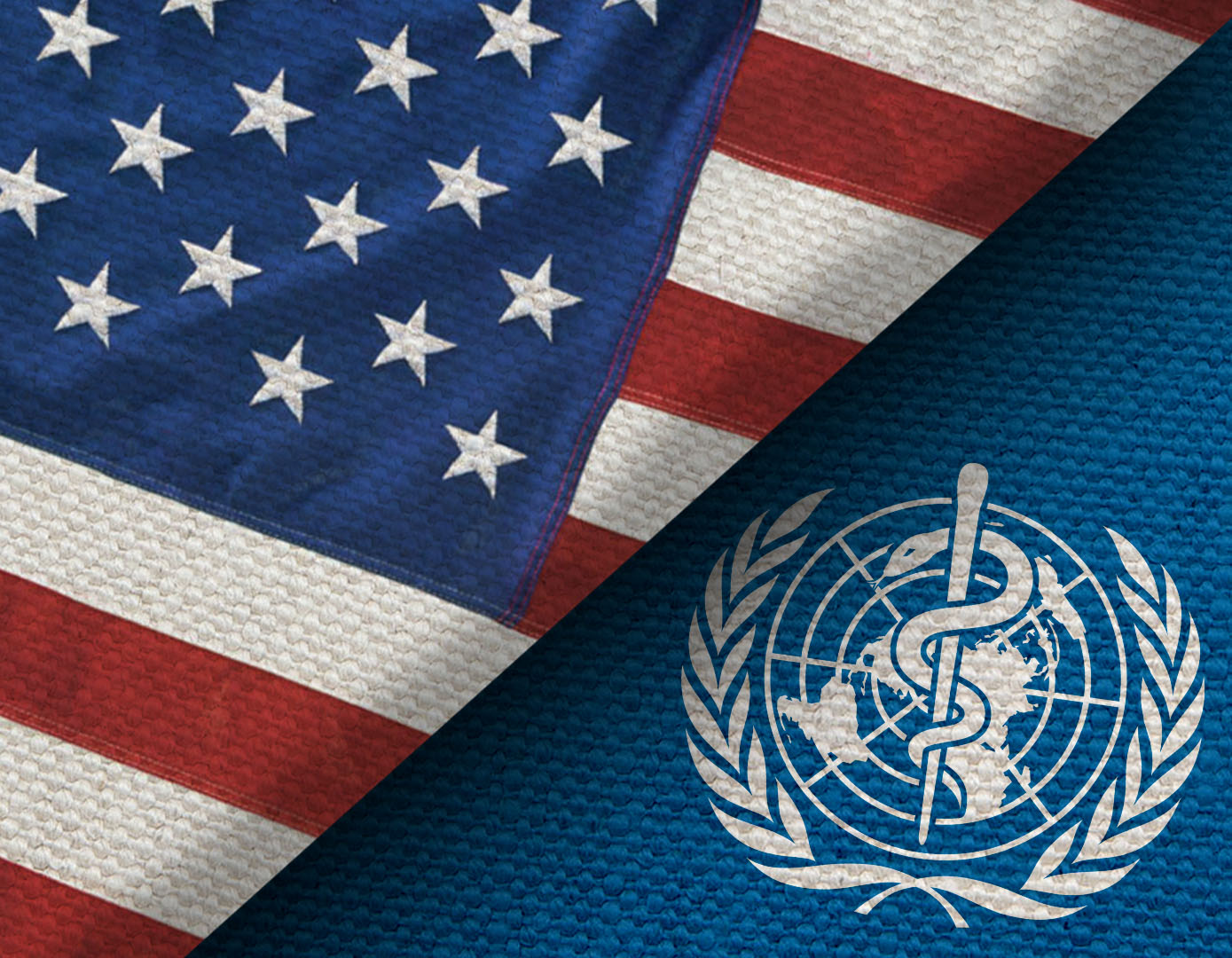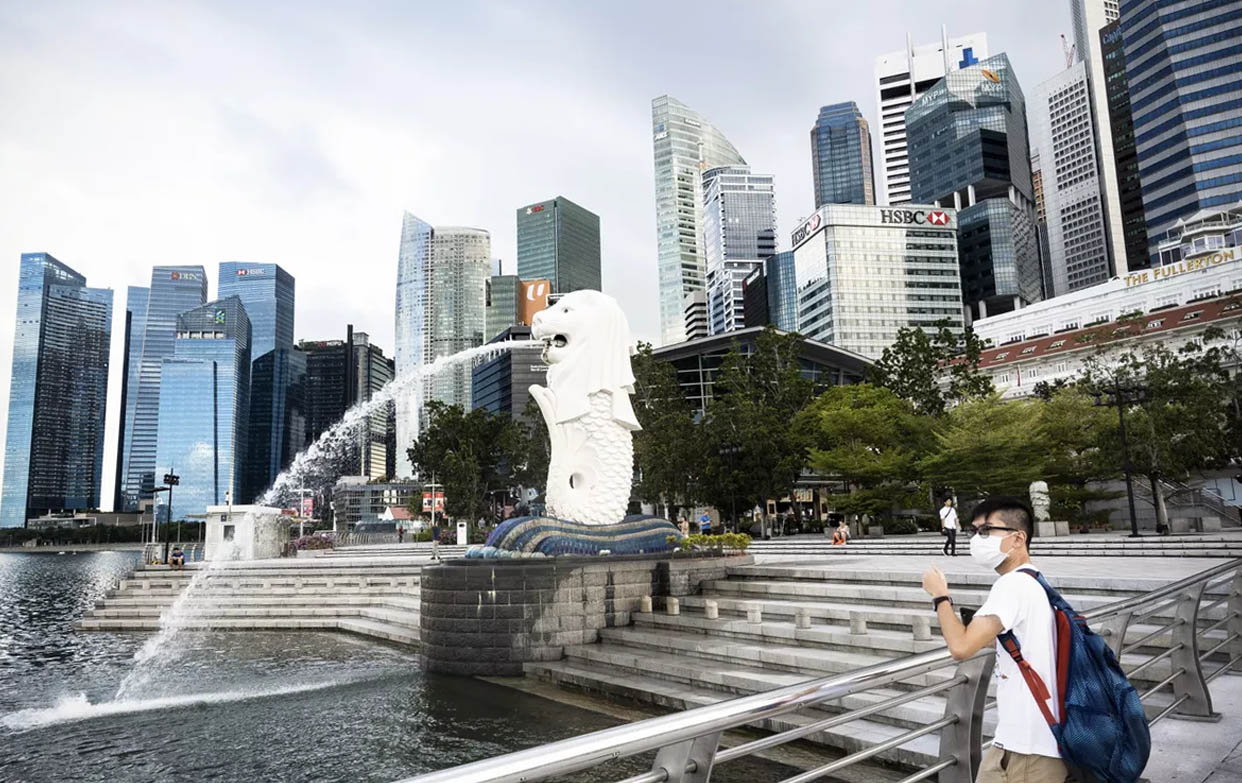The covid-19 pandemic does not only hitting our global economy system, but also exposes the competence of world governments in handling the impact of this unprecedented coronavirus crisis. How is the assessment on the political leadership of democratic countries around the world? Will the pandemic reshape our democracy and governance globally?
Continue readingParis Peace Forum – 2020 Call for Projects

???? Do you have a project seeking to respond to the #COVID19 crisis, improve our collective resilience and build a more robust and sustainable world? Apply now to the #ParisPeaceForum Call for Projects! https://bit.ly/39IwkQK
???? The #ParisPeaceForum2020 tackles the #COVID19 pandemic head-on in its annual Call for Projects. In times of international crisis, #multilateralismmatters more than ever. Apply today: https://bit.ly/39IwkQK
???? Calling all #SolutionsforPeace! The #ParisPeaceForum2020 is just around the corner, and the Call for Projects has officially begun! Do you have a project offering a concrete solution to tackle global challenges? Submit your project today. https://bit.ly/39IwkQK
⏱️ The countdown is on! All key actors of #globalgovernance are invited to submit their #SolutionsforPeace to the #ParisPeaceForum 2020 Call for Projects. Don’t wait until the 12 May, submit your project today! https://bit.ly/39IwkQK
The Paris Peace Forum – Introduction
The Paris Peace Forum was launched in 2018 by French President Emmanuel Macron to promote collective action on today’s most pressing global issues. The inaugural Forum attracted 65 Heads of State and convened leaders from governmental and corporate sectors as well as from civil society – all united in reaffirming the core message.
Continue readingCOVID-19 and the Asia Pacific Growth Forecast
Asia Pacific has been one of the fastest-growing region in the world. Yet as the COVID-19 pandemic requires for a restricted direct human interaction hence disrupting economic activities globally, Asia Pacific as a region is not immune to the economic threats it posed. Experts predicted that the downturn may be more severe than past economic crisis.
Continue readingVirtual Public Discussion – Multi-Faith Efforts in Addressing COVID-19 in Indonesia and Across the Globe
The World Economic Forum acknowledges that faith leaders can actually provide such comfort to their communities by turning to religious texts and theology, and encouraging safe practices. However, they also recognize the need for “an immediate and whole-of society approach to prevent the transmission of the virus.” Particularly for some communities, they need an extra measure of help more than ever as well. It is the kind of relief that is not just spiritual relief, but also physical and financial ones. The question is, how can interfaith communities collaboratively work to respond to the pandemic? What are some of the things that been done in this respect all around the world?
Continue readingVirtual Public Discussion – Anticipating a Covid-19 Global Economic Crisis: How Should Indonesia Get Prepared?
COVID-19 has created a global economic crisis that is now hitting countries across the world. Travel, tourism, production, and international trade have been severely disrupted. Businesses across many industries are forced to shut down. International Monetary Fund projected that the world economy is most likely to experience its worst recession since the Great Depression. How has Covid-19 actually been impacting the world and Indonesian economy? How should the Indonesian government mitigate the risks of possible economic depression?
Continue readingCOVID-19 and Its Impact on Religion
The COVID-19 pandemic has impacted religious practices across the globe in significant ways, reaching a degree that we have never really seen before. Through the social and behavior change communication (SBCC), the changes mainly come from restrictions to gather, worship at a religious site, and conduct religious practices such as pilgrimage and burial ceremonies.
Continue readingThe United States – World Health Organization Tension during the COVID-19 Pandemic
The United States has been a long-standing friend and is the single largest contributor to the World Health Organization (WHO) with assessed contribution is 22% of its total members. Unfortunately, the tension between them has arisen since the outbreak concerning how WHO handled the pandemic. Following the decision to withdraw the funding made by the US, how did WHO respond and what is likely to be the impact?
Continue readingHow are ASEAN Member States Dealing with COVID-19?
COVID-19 is truly a global problem, touching every corner of the world. The pandemic’s impact has been tremendous, with the potential to reshape all countries – including the countries of ASEAN. Though while their problems are similar, the impacts of the virus on each country and their responses are all unique.
Continue readingFPCI Issues to Watch on Religion in a Time of the COVID-19 – Interview by 1000 Abrahamic Circles Project
Interview with Reverend Ryhan Prasad

Reverend Ryhan is the Minister at Khandallah Presbyterian Church in Wellington for the past 7 years. His ministry background spans ten years as a youth worker in the Charismatic movement and then seven years in the Presbyterian Church. His ministry continues to be impacted strongly by the youth and he believes sustainable high-quality youth ministry is one of the keys to the Presbyterian Church going forward.
Ustaz Muhammad Abdullah Syukri

Muhammad Abdullah Syukri is an Ustaz that is based in Cirebon. He teaches at the Institution of Islamic Education in Pondok Buntet Pesantren, one of the oldest and biggest Pesantren (Islamic Boarding School) in Indonesia; established in 1758 and with up to 86000 students enrolled. He is formally educated with Master of Arts in Development and Governance from the University of Duisburg-Essen.
Rabbi Avraham (Avi) Bart

After receiving Rabbinical ordination in Israel, Avraham (Avi) Bart returned home in 2018 to work as a Rabbi in Melbourne’s Jewish community and continue studying Public Health and Medical Studies at the University of Melbourne. He has also run a range of Jewish Communal social and charitable organizations, most notably The Friendship Circle – integrating kids/young adults with disabilities into his community and Australian director of his local youth group Bnei Akiva.
Interviewed by Novrisa Briliantina

Novrisa Briliantina is the Operational Officer of 1000 Abrahamic Circles Project. She graduated from Universitas Gadjah Mada with a Bachelor Degree in Social and Political Science.
Introduction
The COVID-19 pandemic has certainly impacted all aspects of life. Government’s appeal in practicing social distancing has revolutionized almost every single social activity that exists out there and reinvented the new normal. One of the social aspects that is affected significantly from the current situation is the role of religion in the society. On the 7th of April, we held a video interview with three alumni of the 1000 Abrahamic Circles Project. Centered around religion, we talked about how the COVID-19 has altered the way religious leaders conducted their weekly religious worship as well as daily practices. We also discussed how spiritual beliefs and its worldviews provide hope and stability during an unpredictable and difficult time.
1. Thank you everyone for tuning in today. How are you and your family doing these days?
Reverend Ryhan:
Life has changed. I remember doing a service that was in the church building and we also did a live stream because we thought that things were going to change. It did, in the next two weeks we were no longer in that building. So, it has been really interesting, but the church community is discovering that we can still be God’s people over the zoom meeting. The church community has really surprised me in a lot of ways because I have quite a lot of elderly people in my congregation and the amount of them that picked up the technology has been truly inspiring. We pretty much were in service the last couple of Sundays and apart from not being able to pass the peace, shake hands and sing together, every other aspect of the Sunday service went really well. Even though we are distant, we can still gather over the internet. Though it is not the most ideal way of doing worship, we still try our best. There are also more people from our community who have become a lot more involved because it is so much easier to click and join online service, so that is one of the things that we found out.
One of the things that has been harder is we have some elderly people who are living in retirement homes. They are in real lock down and they are really struggling because they do not have access to technology the way most people do, since they are a little bit more isolated than everyone else. The other thing that we are really encouraging is to have the kind of Christian ministry that rings, texts and emails their church members just to make sure we still have that social connection and contact. I found that this is probably the busiest season that the ministry has ever had.
Ustaz Syukri:
We are living together normally with students in our pesantren (Islamic Boarding School), we have almost 10.000 students. It is quite a weird situation when we are no longer living with them. Now we do not have any other options but to repatriate the students. So, they all went home and we stopped the activities in the school. Now we are still discussing the school’s final exam, because Indonesia is quite different from Australia and New Zealand. Not all places or cities in Indonesia are connected to the internet, so we are still figuring this out.
We are also trying to work together with the government in socializing policies to the local people because normally pesantren are not located in the city but in the suburbs and here, not a lot of people care about this issue of health and the COVID-19, unlike people who live in the city. Some of my family members also could not come back to our home because they are living in other big cities in Indonesia and they have to stay at their house. Because you know after Ramadan, we have a tradition called “Mudik”, it is when everyone who is working in another city comes back to their hometown. I think for this year it is not going to happen because of the restrictions. So, it is a weird situation but we have to face it.
Rabbi Avi:
I echo some of what have been said previously. In Australia, we have already had a few weeks with no in-person services which is really challenging. That is so much of what I do: participating in and leading those services. One of the challenges particular to Orthodox Jews is our main services are Shabbat services done on a Saturday. However, on Shabbat, we do not use technology so it is not like we can just live stream what we are doing. So we have had to be really creative.
On Friday afternoon, for example, before the Shabbat comes in, we will do a musical service Welcoming the Shabbat on Zoom. And on Saturday night, after the Shabbat ends, we will also do a closing of the Shabbat service on Zoom. Both of those ceremonies in and of themselves are not generally the biggest Jewish ceremonies especially compared to the Shabbat itself but in the current climate we have had to emphasise ceremonies, services and classes that can be done online as a community.
The other thing is, Pescah (Passover) starts tomorrow, so working out how to do that has also been super challenging. It is such a family centric time and when people cannot go to their uncle’s, brother’s, mother’s house or whoever it is, for that meal, that is really difficult for us.
I am really proud that our religious leaders have made it really clear what we should be doing, which is to stay at home and save lives. They have shown leadership and initiative to shut down the idea that maybe the best way is to keep doing religious services and religious practices in public gathering. I am really proud of some of the forthrightness that people have displayed, but that does not detract from how challenging it is.
2. Reverend Ryhan, how have you and the community at your church been preparing for the upcoming Easter?
It is a big deal; this is the time of the year within the Christian tradition where we are really happy and we celebrate. You go through the stages of the patiences and griefs but ultimately, when Jesus rises you know that is a big deal. So, it is almost a bit of a muteness around it at the moment. I suppose as a spiritual leader, you have to actually do a teaching on this to bring it into light of what is actually happening this week and it is not about COVID, it is about Passover. It is not about COVID, it is about Easter, but how do we do that and how do we not dwell on the things that are physically and worldly challenging? how do we bring our faith into this kind of environment? So, we are going to do a lot of services over Zoom. We will have a meal but we will be facing the camera. We will also do some other things; we are going to do a physical pilgrimage to the cross and walk back home because we are allowed to do a daily walk in New Zealand but still being careful in maintaining the distance with each other.
The thing that I am really excited about is that on a real deep level, people do not say “I do not want to worship anymore”, they are actually saying “how do we worship?” and I think that is a great response because it means that people are in the right frame of thinking that the things of culture and the things of materialism in the society have not overcome the need to worship.
3. Ustaz Syukri, we know that the holy month Ramadan is approaching and there are a lot of religious traditions that exist during Ramadan, such as Salat Tarawih and Salat Eid that are usually done together in a large crowd. How do you and your community prepare for welcoming Ramadan in the current situation?
It is a big deal for us as well. The government and the Indonesian Ulema Council (Majelis Ulama Indonesia) have already made a policy that Salat Tarawih (prayer in the evening of Ramadan) is not supposed to be conducted at a mosque. Actually, in Islam, we have such rules of how to pray in this kind of situation. But people, of course, as well as me, are not used to practicing it. So, I think this is a good time to practice such rules, like how to pray during a pandemic. Because there are always exceptions to every obstacle if we want to keep doing religious activities. For example, there are some exceptions like if there is a heavy rain, a pandemic, or a war. But we have to get used to this situation and in my opinion, there is nothing better to do than to save your life and do religious activities from your home rather than doing it outside and have the chance of getting someone else infected.
In Indonesia, it is still being debated whether people should still go to mosques to pray or pray at their home. In my family as well, in the coming days our teachers will still be discussing which approach is better to take during Ramadan.
4. Despite the fact that numerous religious activities all over the world have been limited and turned to online services, there are still religious worship places that conduct in-person services, what are your thoughts on this?
Reverend Ryhan:
It is an interesting one, because if you look back on the Christian faith, we have had a really deep tragic history of persecution throughout the story of Israel and we have defied a lot of the things that would stop or press us in order to worship. Jewish people have done it and Christian people have done it, and I am sure Muslim people have done it as well. So, in this situation, I think for some people who are hardliners would say that “we still need to gather and do it, because that is how I worship”.
Fortunately, I think within my tradition which is a reformed Christian tradition, there is much more room for us in interpreting rules, in light of what we do in today’s context. So there are only a few people in New Zealand that would say that we still have to go and physically get into a building and worship. Our National Church has taken a stance that, if the church for example were to say “No, we are going to hold on to our religious freedom and we are going to worship”, what we would be signalling to the community of New Zealand is that we do not think that we are under the same law as they are. I do not think that is a very good message to be sent out because we are actually trying to be the good news in the community. We are trying to show how loving and kind God is. I think it is about trying to keep people safe and healthy. We can worship in different ways, so why rock a boat when you actually do not have to.
Rabbi Avi:
Something in my tradition that really speaks to me is the idea that rather than viewing praying at home or online as a compromise of my prayers, in a situation of COVID-19 these are the ideal forms of worship and it is such a wonderful and powerful opportunity that I have to worship, pray to practice my religion in these circumstances. Generally, we pray through coming together as a community, now we come together as a community online and that is becoming the new ideal. So that is what really speaks to me. It also gives me strength through this complicated time. During this time, people would certainly be looking for a community, and that includes people who might have been regular members of the community, or maybe not so regular members of the community, but now these people are starting to get more involved in different things.
I am currently working on a conference about Jewish life which is coming up, and we are reinventing the conference from an in-person conference to an online conference. However, we do not want it to be just a series of webinars, we want it to be something which people can have that community as well as a sense of we have just been at a festival together even though no one left the house. Creativity needs to come through. Things are really complicated and difficult but this has happened and this is the world, so we need to leverage what is going on and realize that there are new ideals in the world of coronavirus.
5. How do you foster connection and engagement with your congregation in the midst of this pandemic?
Reverend Ryhan:
We have this key email that comes out once a week and our staff printed it and gave it to a few people who are not on the internet and living in the retirement village. We have also moved community meetings online. The Bible studies meeting that I will have on Tuesday is now on Zoom meeting. Same with the prayers for the Church, we do that over Zoom. It is helping people from having physical gathering to virtual gathering. I have thirteen people in my Bible studies and usually I have six. I think when we get back into our physical building, the virtual world will not be left on because I think the virtual space has become like a soft entry point for some people who are in a seeking mode. It is easier for them to join virtually because there is less stress and there is less sense of commitment, and maybe over time they can come closer to the centre to join an in-person meeting.
So, I think it gives us an opportunity where we actually did not realize were there before. It is a kind of a nice grey nebulous area where people could engage in a way that often walking through a physical gate in a building is really throwing down the guts, so virtually they can engage in a way that the Church did not really allow them to before. To echo Avi’s statement before, that form and function thing is key, like the function is that we worship, the form of it can take a lot of different in and output depending on your faith tradition but it is interesting that a lot of people hold to the forms because they mistake them as being the function. So, I think if we actually teach people theologically well of what worship means and how it can be so diverse then that helps as well. The connection is definitely more virtual now over the internet. I think it has opened up a group of people that was not easily impacted before via worship.
Ustaz Syukri:
I do the same thing; we do online activities. There is a schedule amongst the teachers every day, reading books and Qur’an. Last week we initiated Istighosah (praying together) online. Istighosah is normally done by praying together with a lot of people in a room but then we do it online. This was my initiation with my colleagues and after that several communities started to do the same. This is interesting because Kyai, or the older Ustaz, are not used to technology like us (the younger Ustaz), but we assure them that they need to be involved in this online prayer because we believe in not only the physical effort needed to face COVID-19, but also the spiritual effort, like having Istighosah online once a week.
With this online method, COVID-19 is not only a health problem but also a social problem that affects many things. There are a lot of hoaxes and hate speech in online media. This is why we always tell our students and community that they need to be aware of such things, especially when people are starting to blame each other. We have to teach the students in pesantren who are still teenagers, because they do not really have the knowledge of which one is real news and which one is hoax. So, if we do not tell them to be aware of hoaxes and hate speech in social media regarding COVID-19, it is going to be a big problem here.
Rabbi Avi:
Moving all of our spiritual and educational dimensions online are some of the things that we have been doing. It is particularly powerful to see the global Jewish community involvement in this, so it is not just local resources that are being produced but also global ones. A lot of people have been putting excellent spiritual and educational content out. Another thing that our community has been doing that is considering people’s physical needs. Making sure that those who are in need in the community, in whatever realm it might be, get what they need.
There have been a few fabulous Facebook groups that have been set up and a cross-section of people through the community are just giving in themselves and whatever they can in this time. It might be like someone who is at home who needs a tutor, so there have been tutoring sessions that have been organized for kids who are now no longer going to school. It might be someone who needs food regularly delivered, or someone who is unable to get their medications picked up from the pharmacy. So there has been a whole parallel physical side to all of this that we have been working through, and of course as I am sure everyone else has been doing this as well in the pastoral care elements. So, everyone has been very busy in the pastoral care space over the last couple of weeks, checking in and making sure that everyone in the community has what they need in all domains and dimensions.
6. Following the news development about the COVID-19 on a daily basis can certainly evoke a range of emotions, from fear, worries, disappointment, to perhaps anger for such a sudden and extreme change in the way we live our daily lives. For some people, it is also about facing an uncertain future. Could you please share with us your thoughts on this particular human struggle? Are there some spiritual tools that we can use to cope with these difficult emotions, to stay hopeful, and move forward?
Reverend Ryhan:
Yes, because we are building up into Easter, we are celebrating what we call Lent. Lent is a time when we are being introspective and reflective about our spiritual lives. We are trying to compare it to Jesus’ 40 days of Temptation in the wilderness, then leading to his sacrifice on the Cross. So, I think it is really interesting that the whole world is doing Lent at the moment. They are in lockdown and everyone has to sacrifice. The world is learning how to forgo some things they have to let go and that is weird in Western first world countries. We are not used to giving up and we are not used to sacrificing things. So, with that, there can come anxiety, fear, and anger. Luckily, I have not seen a lot of anger yet. I think spiritual disciplines like prayer, meditations, and reading the word can ground us so we are in our best humanities when we go outside. However, inside, this is not a good space for people in abusive relationships.
My wife’s sister works with the New Zealand Police, and she works with the domestic violence department. What would happen is people would turn to alcohol and drugs and create situations that already take relational anxieties. As a result, domestic abuse cases go into the roof. It is not good in New Zealand, but this is when the Church and also people can reach out to each other. If your neighbour is in a difficult situation, how do you help them? I think of the faith traditions of reaching out to people, teaching us to be kind, and loving God and loving your neighbour. If you focus on that and play that role, I think it helps a lot. People who are in hurtful places are more isolated now. The more we can sow kindness, enjoyment, and love into our society at the moment is a good thing.
Ustaz Syukri:
I think staying at home is the best option for us. Actually, in Islam, we have certain restraints in our worship practices. In Ramadan, fasting is when we restrain from hunger, but now during the COVID-19 pandemic, we refrain from going out of our home. It is not only good for us, but also good for other people because in Islam, keeping your religion is important, but keeping your life has the same importance. So, you have to take care of yourself and other people. There is a hadith that I can translate into English: “If you hear of an epidemic in an area, then do not enter it. But if an epidemic occurs in your area, then do not leave that place” (HR. Al-Bukhari). So please do not leave your home for medical and religious reasons. Please do positive things, maybe you can interact more with your family, get to know yourself more, follow online courses or online studies because there are a lot of free online studies.
Rabbi Avi:
For me, my religion gives me perspectives. It is a source of strength, power, and wisdom that I carry in my life. My Judaism is a lens which I take out into the world. It is through the different texts and the different characters and stories, that is how I make sense of this ridiculous world that all we live in together. If I start talking about specific examples, we will be here for a while but the essence of it is I am drawing on my religion, the lessons and characters and stories, the metaphors and motives through everything and they give me strength, resilience and perspectives.
7. Learning from the past, of course the plague and the pandemic that happened at this time also had happened before. However, today there are still many worshipers who do not obey the rules whether it’s social distancing or stay at home rule, on the pretext that God will always protect those who believe. What wisdom can we take from religious leaders in the past that we can take and do now?
Reverend Ryhan:
I preached on Sunday about the Black Plague. Martin Luther, one of the great Reformists of the time, was hiding in his cabin and he wrote a letter to his friends. The letter is a funny yet formal one, and has some amazing advice. He was basically saying that he tried everything he can medically to stay safe, but he is not leaving anyone who is hurting behind.
So the lesson is, if I do everything right and be the safest I can be but I also need to help my neighbour who is sick, then if God deems that I die in helping my neighbour, it means I have done everything I can and it depends on the will of God. It is not about being lazy and thinking that nothing can really affect me. Martin Luther was all about following the medical advice of the time while also not giving up on those who need help. I thought this was a really cool advice, and there is wisdom in old histories.
Ustaz Syukri:
His name is Kyai Muqoyyim at that time there was a pandemic in Cirebon, in my city then they asked the people to do a lot of praying but also to keep their health so he was saying that you have to do two efforts, physical and spiritual and both of them have to go in balance. This situation can actually be a chance to Indonesians to prove that we are a strong nation and able to work together to solve this problem but we need multi sectoral and multi actors approach to face it, the government, the people, and the religious leaders do their own task in order to together to solve this problem and not blame each other.
8. In your community are there any interfaith efforts in providing some sort of relief amidst this outbreak?
Ustaz Syukri:
Now I am communicating with some Christian communities. They will give us masks but it is still in process but if the things are ready, they will send 1000 masks to our community.
1000 Abrahamic Circles is a special project under FPCI that was established in 2018. It is an independent, grassroots, and international interfaith peace effort that aims to bring together Abrahamic faith leaders from three different countries on a journey to each other communities. The ultimate objective of 1000 Abrahamic Circles is to measurably increase religious literacy, empathy and a sense of tolerance and mutual respect, not only among Jewish, Muslim, and Christian Circle members, but also among their followers and the wider global general public.


